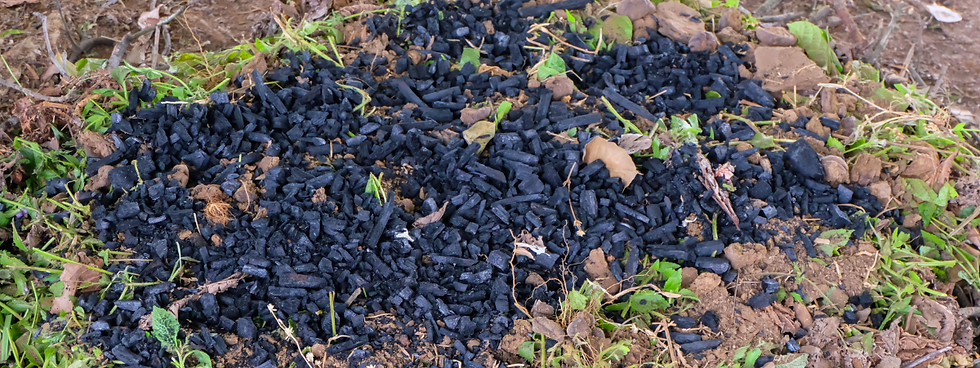
Biochar
Biochar is a carbonaceous material obtained by pyrolysis of biomass (agricultural residues, forest residues, manure) in the absence or with little oxygen. It has a porous structure, rich in carbon and very stable, which gives it benefits for improving soil, retaining water, and contributing to carbon sequestration.
Biochar is a carbonaceous material produced by pyrolysis (thermal decomposition in the absence or with very little oxygen) of biomass, such as agricultural residues, forest residues, or manure. Its structure is porous, rich in carbon, and very stable, which gives it beneficial properties for both soil and water.
Water efficiency
Main theme:
Andean
Region:
600 - 900
Precipitation (mm):
Low
Application difficulty:
1, 2, 3, 6, 7, 9, 11, 12, 13 and 15
SDGs impacted:
Gravity
Energy used:
50 - 70
Efficiency (%):
Rural
Sector:
Carbon sequestration, greenhouse gas reduction, soil improvement, water retention, erosion reduction, contaminant filtration.
Expected environmental impact:
$300 - $1000 / ha
Estimated value:
1- https://www.fao.org/family-farming/detail/es/c/1698420/?utm 2- https://www.fao.org/agroecology/database/detail/es/c/1697105/?utm 3- https://www.sciencedirect.com/science/article/pii/S0960852423010623?utm 4- https://www.sciencedirect.com/science/article/pii/S0048969723054384?utm
Links of interest: